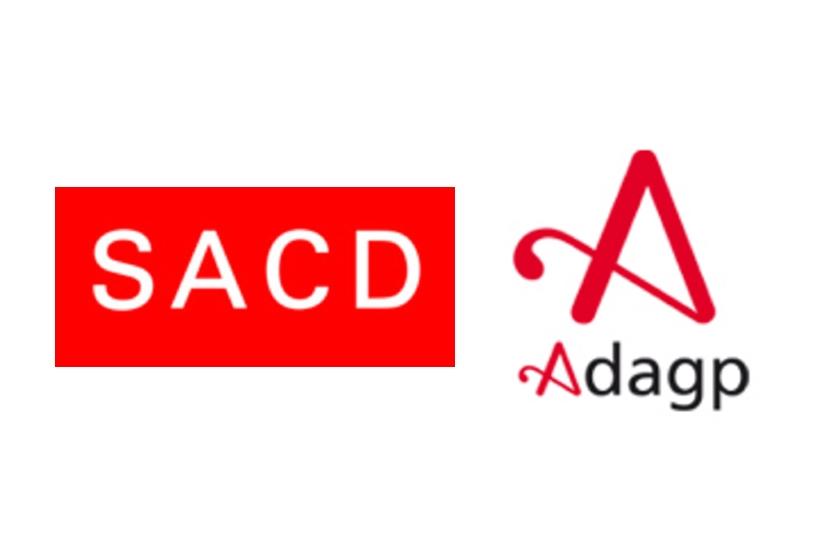French Authors’ Societies Welcome Progress on New Creation Law for Authors

The French Parliament adopted the bill on “Freedom of Creation, Architecture and Heritage” on Wednesday, 29 June.
In a press release, CISAC member ADAGP welcomed this “historic vote”. The law establishes a rights management system that allows remunerating visual artists and photographers whose works are reproduced by search engines and referenced on the Internet. The law acknowledges the responsibility of search engines in remunerating creators.
SACD also welcomes the text’s adoption, which brings “new rights for authors”.
Read the ADAGP and SACD press releases (in French).
ADAGP
Image Search Engines: A Historic Joint Committee Vote
20 June 2016
Visual artists and photo agencies welcomed the joint committee of Senate and National Assembly representatives’ 15 June vote that confirmed the establishment of a collective rights management system allowing the remuneration of authors whose works are reproduced by automated image referencing services.
With this vote, members of parliament responded to the call of visual artists and photo agencies and clearly reaffirmed their support.
Visual arts industry organisations welcomed the Parliament’s determination for having following through on this initiative led by senators as well as expressing their deep gratitude.
The law on “Freedom of Creation, Architecture and Heritage”, finalised on 29 June, is a historic step forward for visual authors and photo agencies, who will be able to be associated to the value generated by the exploitation of their works so that innovation benefits everyone.
Equally highly anticipated by European authors, this decision opens new perspectives on upcoming European discussions.
Press Contact:
Coralie de la Martinière
Coralie.delamartiniere@adagp.fr
Phone: +33 (0)1 73 79 56 41
SACD
Parliament Adopts Law on Creation: New Gains for Authors and Creation
29 June 2016
After review by the National Assembly and Senate, SACD welcomes the definitive adoption of the new law on “Freedom of Creation, Architecture and Heritage” and thanks the French Government for bringing new rights for authors and strengthening government policy in favour of creation.
For live performances, the introduction of a base that establishes guidelines and objectives that public policy must follow fills an important gap.
In this regard, the willingness of deputies and senators to defend and support contemporary Francophone creation while reinforcing equality between women and men in live performances entirely met authors’ expectations.
The law creates the necessary conditions to establish measures of monitoring live performances. This will allow obtaining a deeper understanding of the live performance economy and its realities, which SACD has requested for over the years.
For audiovisual and cinema, the law confirms essential progress that ensures better transparency between producers and authors. This law also breaks new ground in favouring the circulation and distribution of works. Specifically, it introduces an obligation to make audiovisual and cinematographic works permanently available, which constitutes a very important breakthrough and true advancement for authors and creation. It places the obligation on the creator to do their best effort to make works available and accessible to the public.
SACD is participating in consultation meetings organised under the aegis of the National Center of Cinematography and Moving Image (CNC) in order to determine the terms of this new requirement, which must be ambitious and demanding in the interests of distributing works and public access to creation.
Parliament also chose to encourage cinema professionals to adapt and modernise media chronology rules to take into account the evolution of the audiovisual and film landscape as well as the arrival of new operators and ways of exploiting works.
By limiting the validity of the extension agreement decree on media chronology to 3 years, Parliament sent a strong signal to adapt the current media chronology, which included strict, damaging rules for distributing works without exceptions that were defined in 2009.
The law also extends private copy remuneration to online DVRs. In this regard, authors’ remuneration is ensured and guaranteed when their works are copied and stored in the cloud by users of these new online services.
The broad consensus obtained around this law is a positive and welcome sign. However, the work started by this law must be extended through key reforms to rebalance policy by placing authors at the heart of its action.
It is urgent for public authorities to act in two ways: guarantee that authors associations can participate in professional negotiations that define investment and television channel distribution requirements for patrimonial creations [films, television series, documentaries and other works that provide important cultural and economic value]; put an end to regulation that protects independent production more in its relations with broadcasters and which always forgets to frame and protect authors in dealing with producers.
For its part, SACD will be active in the coming months in defending and facilitating the adoption of more protective rules for authors and their creative work so that freedom of creation, established by this law, becomes a reality for authors.
